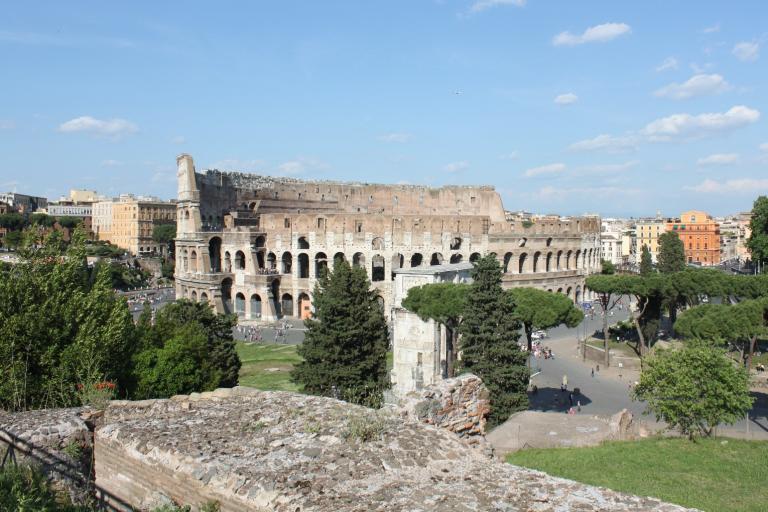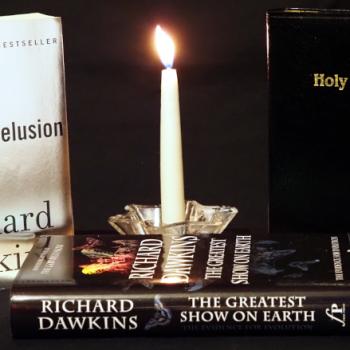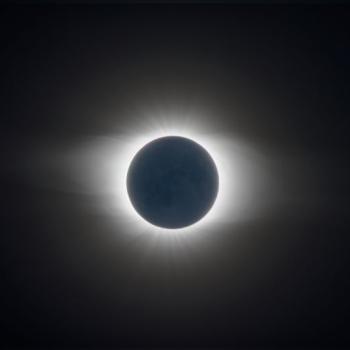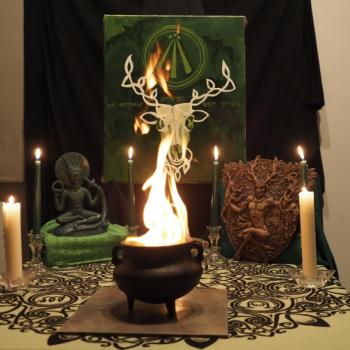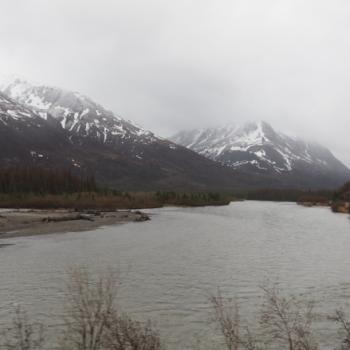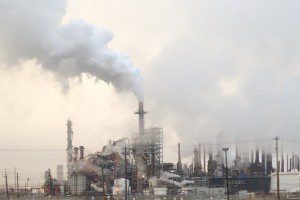 Last week I saw several posts from Pagans whose work I greatly respect that bordered on despair. I understand. Unless you’ve got your head buried firmly in the sand, how can you look on the future of humanity and not be concerned? I’m not talking about the usual hatred, greed, and violence. I’m talking about the huge issues that threaten the future of our species – issues that don’t have easy answers and thus are being ignored by most people.
Last week I saw several posts from Pagans whose work I greatly respect that bordered on despair. I understand. Unless you’ve got your head buried firmly in the sand, how can you look on the future of humanity and not be concerned? I’m not talking about the usual hatred, greed, and violence. I’m talking about the huge issues that threaten the future of our species – issues that don’t have easy answers and thus are being ignored by most people.
Western culture is based on fossil fuels and fossil fuels are running out. It’s not enough to say the Western lifestyle is based on fossil fuels, although that’s certainly true. Our entire economic system and much of our culture are based on the idea of continuous progress and continuous growth. That’s been mostly true over the past 200 years or so, but only because we’ve been able to extract and burn fossil fuels that took millions of years to form in the Earth.
The oil and gas won’t be gone in a year or two or ten. But the easy-to-get oil is already gone – that’s why we’re doing fracking, off-shore drilling, and other energy-intensive and environmentally hazardous means of production. Eventually (I’ve seen estimates ranging from 20 to 70 years) that will be gone too. Conservation and renewable energy sources can stretch that out, but there is nothing in existence today that can take the place of oil and gas for generating electricity and powering transportation.
Human population has already exceeded the carrying capacity of the Earth and continues to grow. It took until 1804 for the human population to reach 1 billion. Not coincidentally, that was near the beginning of the Industrial Revolution. It took 123 years to reach 2 billion. We’re now at 7 billion and we’re adding another billion every 12 years. This massive increase has been possible only because of the food production and medical improvements driven by the fossil fuel economy. When the oil is gone, so are chemical fertilizers and the world-wide food distribution network that sends Kansas wheat across the globe and brings strawberries to American suburbs in the dead of winter.
Our excessive population and fossil fuel use have already had a negative impact on the climate and on the survival of other species and ecosystems. How many forests have been cleared for farmland? How many streams have been dammed for hydroelectric power, or to collect water for human use? How much has the climate already changed? The water restrictions in California are only the beginning. The climate is getting hotter, drier, and more unpredictable. The reliable Kansas wheat and Iowa corn harvests are going to get smaller and much more varied – and that’s in the near future.
Longer-term we will experience sea level increases. How much of the coasts they flood is uncertain, but while the rise is likely to be gradual enough for first-world countries to relocate people and facilities, tens of millions of people will be displaced in countries that do not have the resources to deal with refugees.
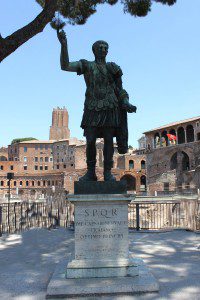 So what can we do? Anybody who tells you there’s a way to deal with these issues that doesn’t involve a lot of pain for a lot of people is either naïve or trying to sell you something. Or, more generously, they’re so totally absorbed in the unquestioned assumptions of modern Western society that they can’t even contemplate its limits and its eventual end. Egypt was the world’s pre-eminent civilization for 4000 years, but its dynasty ended. Rome ruled the West for 400 years, but its empire ended. In this hemisphere, the Mayans, the Incas, and the Aztecs had their day, but their empires are long gone.
So what can we do? Anybody who tells you there’s a way to deal with these issues that doesn’t involve a lot of pain for a lot of people is either naïve or trying to sell you something. Or, more generously, they’re so totally absorbed in the unquestioned assumptions of modern Western society that they can’t even contemplate its limits and its eventual end. Egypt was the world’s pre-eminent civilization for 4000 years, but its dynasty ended. Rome ruled the West for 400 years, but its empire ended. In this hemisphere, the Mayans, the Incas, and the Aztecs had their day, but their empires are long gone.
What could possibly make anyone think the American empire will have a different fate – other than nationalistic propaganda or garden-variety wishful thinking?
In my early Pagan days, I once led a ritual that proclaimed “there are no limits but those we place on ourselves.” This was wishful thinking that just a bit of observation and reflection proves false. The limits of the water supply in California are becoming quite clear. That there are limits to the oil supply and to the amount of carbon dioxide we can dump into the atmosphere is just as clear, even though the impacts of those limits aren’t affecting most people personally, so they’re easy to ignore – for now.
What could we do? We could put strict limits on reproduction with the goal of a massive reduction in the human population. Put even stricter limits on production and use of fossil fuels. Make mandatory changes in where and how people live to reduce energy consumption and put people close to their food supplies. A massive redistribution of wealth from rich countries and individuals to poor countries and individuals to deal with the environmental and economic disruption.
So what will we do? The reality is that we will do none of this. The changes are too drastic, the effects are too unpleasant, and the payoff is too far in the future for greedy humans and our live-for-today evolutionary urges to take any meaningful action.
We are already experiencing the results of exceeding natural limits. Our descendants and today’s young people will feel the full impact of climate change and fossil fuel depletion. They will laugh at our naïve assumptions and our refusal to accept limits, they will curse our selfish behavior… and they will be jealous of the luxury in which we lived.
The despair of Cassandra. Many – though far from all – Pagans see this situation, in varying degrees of clarity. Nature centered Pagans are more likely to see and feel the effects of human activity on the natural world. Mostly, I suspect our general dissatisfaction with mainstream society helps us see its unstated assumptions more clearly than most.
But we are a tiny religious minority and we have enough trouble getting the mainstream to stop harassing us, much less to listen to prophecies no one wants to hear. It’s no wonder some of our most serious, hardest-working folks feel despair.
The resilience of humanity. When I visited the Roman Coliseum in 2012, our guide explained that most of the missing stone wasn’t carried off by Goths and Vandals – it was repurposed by the medieval Romans who were but a fraction of the city’s population during the days of the Empire. The city looked very different then, but Rome was still there.
In school I was taught that the Mayan civilization disappeared, but when I visited Uxmal in 2008 our guide made it quite clear they never went anywhere. The pyramid-building empire collapsed, but the Mayan people are still there and still speaking the Mayan languages.
300 years from now, will the desert have reclaimed the Southern California suburbs? Will the Dallas of 2315 look more like the Dallas of 1875 than of 2015? Will Florida even exist? Will air travel be reserved for the very rich, or will it be such a distant memory some deny it ever happened? I don’t know.
But I do know this. Life has never been easy, but it has often been far more difficult than it is in the contemporary West. And yet humans – our ancestors – overcame an ice age, famine, war, disease… and the collapse of civilizations they thought would continue forever.
We and our descendants will do the same. The Western economy and culture will decline slowly but steadily. We will adjust. It won’t be easy and it certainly won’t be pleasant, but we will make do with what we have and without what we will no longer have. The population will decrease, but like the Romans and the Mayans before us, we will remain. Despair is both needless and unproductive.
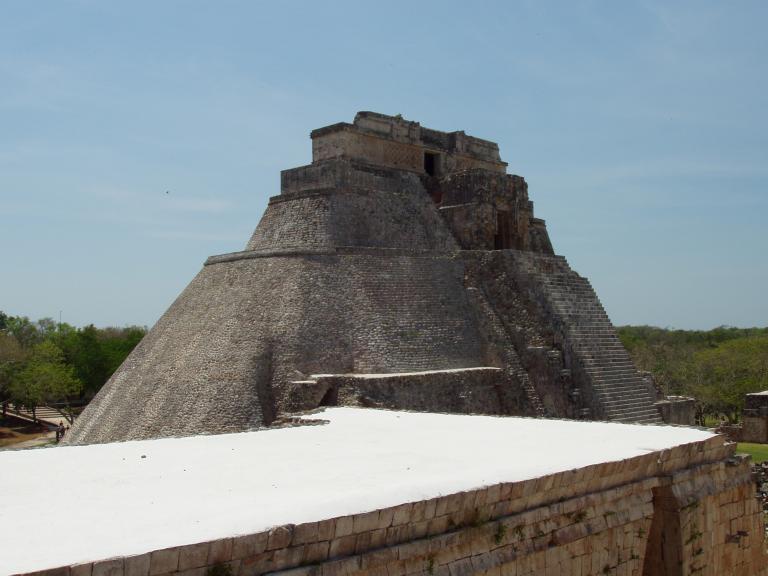 This doesn’t excuse our collective inaction. We could have chosen to limit our consumption and limit our numbers. We could have built a lower impact society as late as the 1970s. Instead, we built bigger houses, faster cars, and outsourced production in the name of lowest price always. Now the die is cast.
This doesn’t excuse our collective inaction. We could have chosen to limit our consumption and limit our numbers. We could have built a lower impact society as late as the 1970s. Instead, we built bigger houses, faster cars, and outsourced production in the name of lowest price always. Now the die is cast.
It’s too late to leave our descendants a richer, more secure world than we have enjoyed. It’s not too late to begin laying the foundations for the world that is to come. That will be the subject of the next post.


